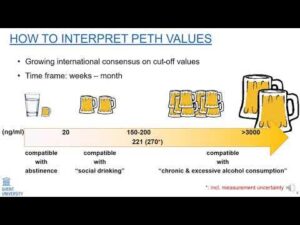Service
Ellis County DWI / DUI Lawyer
Know your rights…
Professional Ethyl Glucuronide Testing (PETH) has emerged as a valuable tool in assessing alcohol consumption patterns with a high degree of accuracy and reliability. As an innovative biomarker, PETH testing provides valuable insights into an individual’s alcohol consumption habits, aiding in the diagnosis and treatment of alcohol-related disorders. This article aims to elucidate the concept of PETH testing, its procedural intricacies, interpretation of results, and its significance in discerning between casual, social drinking and heavy alcohol consumption or alcoholism.

What is PETH?
PETH, or Phosphatidylethanol, is a direct alcohol biomarker formed in the body when ethanol is metabolized. Unlike traditional alcohol tests, which measure alcohol concentration in blood or breath, PETH testing detects the presence of a metabolite that is only produced in the presence of alcohol. This makes PETH testing highly sensitive and specific, capable of detecting even low levels of alcohol consumption over an extended period.
The Process of Taking the Test
The process of PETH testing typically involves a simple blood draw performed by a healthcare professional or trained technician. The blood sample is then sent to a laboratory for analysis. PETH testing can detect alcohol consumption over a longer timeframe compared to traditional tests, with a detection window of up to 2-3 weeks depending on the amount and frequency of alcohol consumed.
Interpreting PETH Results
PETH results are reported in quantitative terms, indicating the concentration of Phosphatidylethanol present in the blood sample. Generally, PETH levels below a certain threshold (typically 20 ng/mL) are considered indicative of abstinence or minimal alcohol consumption. Elevated PETH levels suggest recent or chronic alcohol consumption, with higher concentrations correlating with heavier drinking patterns.
Casual or Social Drinking vs. Heavy Drinking or Alcoholism
It is essential to differentiate between casual or social drinking and heavy drinking or alcoholism when interpreting PETH results. While occasional, moderate alcohol consumption may yield detectable PETH levels, particularly in the short term, sustained or excessive drinking can lead to significantly elevated levels indicative of problematic alcohol use or alcohol dependence.
Casual or social drinking typically involves moderate alcohol consumption on an occasional basis, often in social settings or special occasions. Individuals who engage in casual or social drinking may exhibit low or negligible PETH levels, reflecting infrequent or minimal alcohol intake.
In contrast, heavy drinking or alcoholism involves regular and excessive alcohol consumption, often resulting in elevated PETH levels indicative of chronic alcohol exposure. Individuals with alcohol use disorders may demonstrate consistently elevated PETH concentrations, reflecting sustained alcohol consumption and potential dependence.

Conclusion
PETH testing represents a valuable tool in assessing alcohol consumption patterns and identifying individuals at risk of alcohol-related harm or alcohol use disorders. By providing objective data on alcohol exposure over an extended period, PETH testing enables healthcare professionals to make informed decisions regarding diagnosis, treatment, and intervention strategies.
Understanding the nuances of PETH testing, including its procedural aspects, interpretation of results, and implications for differentiating between casual and heavy alcohol consumption, is crucial in promoting effective alcohol screening and intervention efforts.
For more information on PETH testing and its applications, please visit the National Institute on Alcohol Abuse and Alcoholism (NIAAA) website at niaaa.nih.gov.

Time is of the essence…
If you were arrested for a DWI you only have 15 days to request a hearing for ALR – automatic license renewal. If you do not request a hearing in time or do not show up prepared, your license could be suspended.
Likewise other crimes have important factors that are time sensitive. It may be important to have you tested at a court approved lab for drugs or other substances because drugs will metabolize out of your system very quickly and there is only a small window of time left to test.
And for other crimes still it can be important to get witness testimonies or affidavits before the details start to blur or fade or before other parties obtain lawyers and stop talking.
Office Hours
Weekdays – 9:00 am to 6:00 pm

Divi attorney
Contact Info
Waxahachie TX 75165
(469) 547-7761